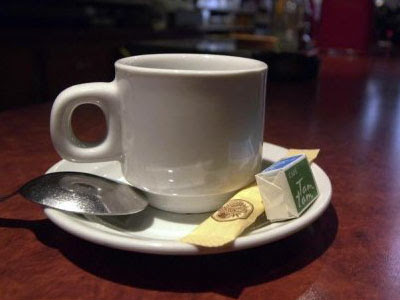 |
| Lung cancer |
AFP - The annual radiographs of the chest do not reduce mortality from lung cancer, according to a large clinical study presented Wednesday to the United States that shows the futility of this procedure. "These results provide strong evidence that there is no substantial gain in survival for people with lung cancer with an annual x-ray of their lungs," write the authors of the research published in the Journal of the American Medical Association (JAMA) dated November 2. It is published on Wednesday in the online edition of JAMA because of his presentation that day at the annual conference of the American College of Chest Physicians (CHEST 2011) held from October 22 to 26 in Honolulu (Hawaii).
The study was conducted in the United States from November 1993 to July 2001 by Dr. Martin Oken of the University of Minnesota (north) with a group of 154,901 participants aged 55-74 years, of which only half was chosen at random to undergo annual radiography of their lungs for four years. The other group was the subject of examinations and routine medical care. Participants in both groups were similar with an equal proportion of men and women. Each of these groups were also 45% of never smokers, former smokers 42% and 10% still smoking. During a follow-up period of 13 years ended in 2009, these researchers have diagnosed lung cancers in 1696 the group subjected to an X-ray and annual 1620 in the control group.
Mortality rates that resulted from these cancers observed in both groups over the 13 years were almost identical with 1213 deaths among those who have had an x-ray and 1,230 deaths annually in the control group.
The distribution of different types of tumors in both groups was also similar with 41% of adenocarcinomas, squamous cell carcinoma 20%, 14% of small cell carcinoma, 5% of large cell carcinoma and 20% other variants epithelioma of large cell. In an editorial also published in JAMA, Dr. Harold Sox of Dartmouth Medical School in West Lebanon (New Hampshire, North-East) considers that the results of this study "provide compelling evidence that radiography of the chest to detect lung cancer is not effective "in reducing mortality.
According to him, "this study is important to resolve this issue once" and use of helical scan (CT scan, allowing the reconstruction of 2D or 3D anatomical tissue) as the imaging technique. An extensive study conducted on 50,000 American smokers and former smokers aged 55 to 74 smokers, unveiled in 2010, has actually shown that this technique allowed better detection of small tumors in their early stage of development than traditional radiography, thus reducing 20% mortality.
According to him, "this study is important to resolve this issue once" and use of helical scan (CT scan, allowing the reconstruction of 2D or 3D anatomical tissue) as the imaging technique. An extensive study conducted on 50,000 American smokers and former smokers aged 55 to 74 smokers, unveiled in 2010, has actually shown that this technique allowed better detection of small tumors in their early stage of development than traditional radiography, thus reducing 20% mortality.
This clinical study called "National Lung Screening Trial" showed for the first time that early detection of a cancerous tumor of the lung reduces the risk of dying, which is a great step forward, said Dr. Sox. Lung cancer is the leading cause of cancer death in the United States and around the world.

